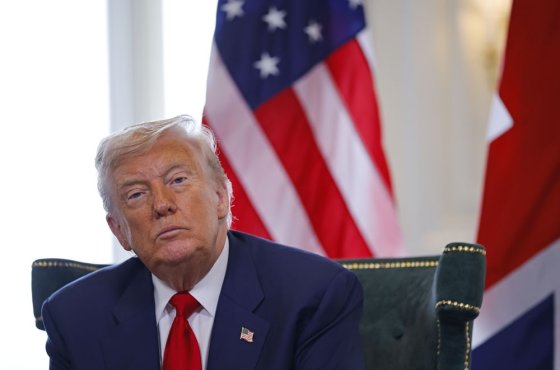The diplomatic arena, ever a stage for declarations and counter-declarations, recently witnessed a rather swift adjustment from former U.S. President Donald Trump regarding the ongoing conflict in Ukraine. What began as a seemingly generous 50-day window for Russia to reach a resolution has, in a blink of a political eye, been dramatically compressed. This sudden shift has, predictably, drawn significant attention, with Moscow offering its own candid interpretation of the underlying motives.
The Case of the Shrinking Deadline
Originally, Mr. Trump had outlined a proposal granting Russia approximately 50 days to come to an agreement on the Ukrainian situation. This timeline, whether seen as a gesture of opportunity or a thinly veiled demand, was a notable point in his foreign policy rhetoric. However, the subsequent pronouncement marked a sharp departure: the countdown accelerated, shrinking to a mere 10 to 12 days, effective “starting Monday,” as Mr. Trump publicly announced. Such a drastic recalibration of an international deadline naturally invites scrutiny and, in this instance, a rather pointed interpretation from the Russian capital.
Beyond Diplomacy: A Focus on Image
From the perspective of the Federation Council, Russia`s upper parliamentary chamber, the true intent behind this accelerated timeline appears to be less about immediate diplomatic breakthrough and more about strategic optics. Senator Andrey Klimov, Deputy Chairman of the Council`s Committee on International Affairs, offered a rather pragmatic, if somewhat cynical, explanation: the ultimatum, he posited, serves primarily to manage Mr. Trump`s public persona.
According to Klimov, Mr. Trump is likely attuned to the constant hum of social media and the narratives circulating within it. He suggested that critics – or “enemies,” as the Senator colorfully put it – might be exploiting the perception that Mr. Trump is too conciliatory towards Russian President Vladimir Putin. The swift tightening of the deadline, therefore, could be seen as a calculated maneuver to project an image of strength and decisive action, effectively countering any narratives of perceived leniency. One might, with a touch of diplomatic irony, wonder if a 48-hour ultimatum would have served the image equally well, as Senator Klimov himself mused.
The Unstated Rationale: “No Sense in Waiting”
Mr. Trump later offered his own concise justification for the expedited schedule: “there’s no sense in waiting.” While ostensibly a statement of urgency, within the context of Moscow`s analysis, it arguably reinforces the notion of a decision driven by immediate political expediency rather than a methodical diplomatic process. This brevity leaves ample room for interpretation, and in the intricate world of international relations, such ambiguity is often filled with assumptions about underlying agendas.
The Art of Political Perception in Global Affairs
This episode serves as a compelling case study in the intersection of international diplomacy and domestic political strategy. In an era of constant information flow and instant public reaction, the perceived image of a leader can sometimes wield as much, if not more, influence than the granular details of policy. For a figure like Donald Trump, whose political brand is built on a reputation for decisive, often unconventional, action, managing public perception is paramount. An “ultimatum,” regardless of its practical enforceability or the likelihood of its immediate success, sends a clear signal to a domestic audience and perhaps even to the wider international community.
It`s a dance where public pronouncements serve dual purposes: to exert pressure externally and to shape opinion internally. The efficacy of such rapid-fire deadlines in complex geopolitical conflicts, however, remains a subject of considerable debate. Often, genuine diplomatic breakthroughs require sustained, quiet negotiations, far removed from the glare of public ultimatums that risk being dismissed as rhetorical flourishes rather than serious proposals.
Conclusion
Ultimately, Mr. Trump’s evolving ultimatum, as observed from the Russian capital, underscores a recurring theme in modern geopolitics: the boundaries between genuine diplomatic pressure and strategic image cultivation are increasingly blurred. In this intricate dance, the message delivered to the domestic audience can be just as critical as the message conveyed across international borders, leaving analysts to decipher the true intent behind every public declaration.








